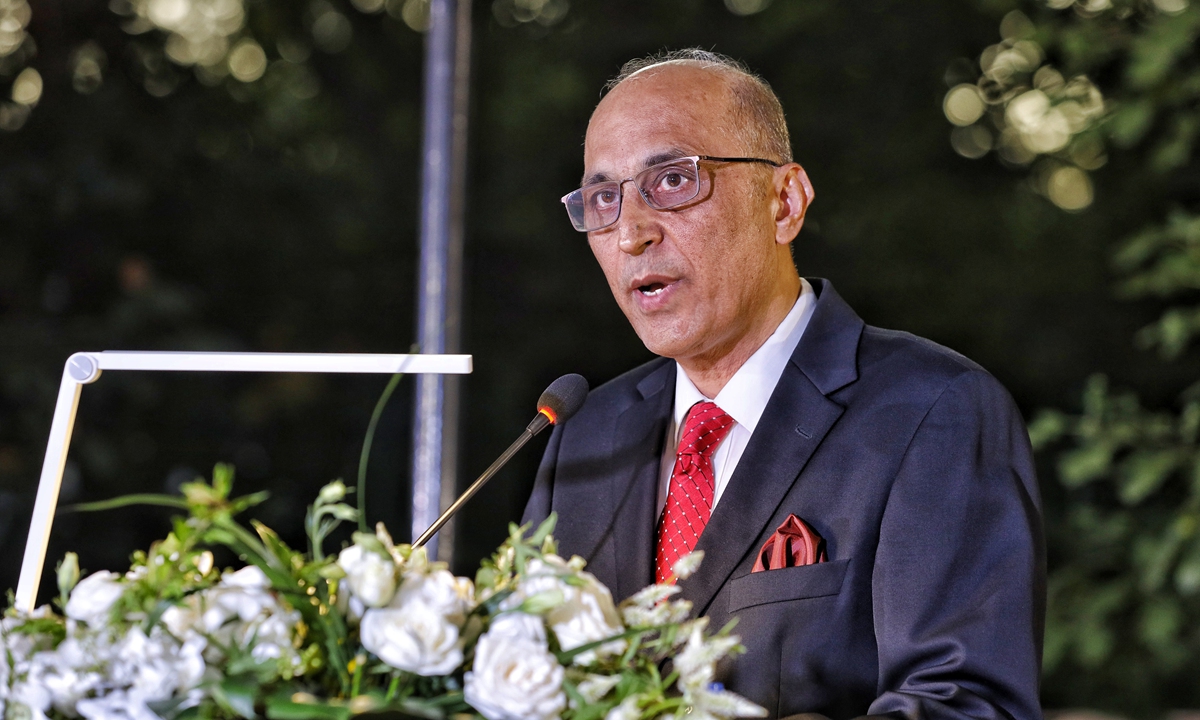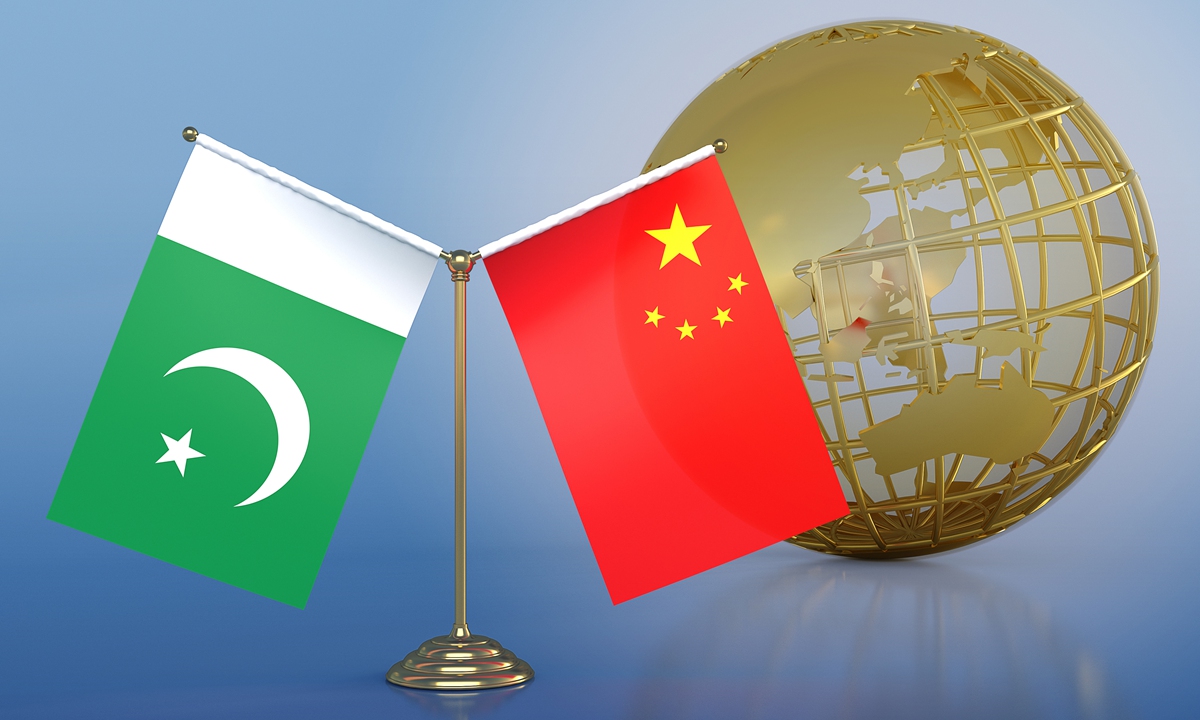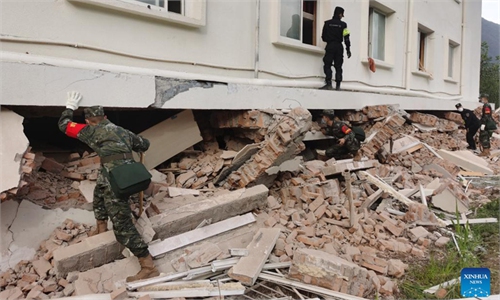SCO creates new space for mutually-beneficial and equitable cooperation in the Eurasian region: Pakistani Ambassador

Pakistani Ambassador to China Moin ul Haque
With its rich experience in multilateral cooperation and its growing number of member states, observers and dialogue partners, the Shanghai Cooperation Organization (SCO) is opening up new space and opportunities for building a developmental space for open, mutually-beneficial and equitable cooperation in the Eurasian region, Pakistani Ambassador to China Moin ul Haque told the Global Times in an exclusive interview on Friday, referring to the attractiveness of the SCO.
SCO's developments enhance its important institutional role in "formulating regional and global policies, and ensuring security and sustainable development for countries of the region and beyond," he said.
Ambassador Haque noted that as a founding member of the SCO, China has been at the forefront of its evolution and expansion and Pakistan aims to further enhance cooperation with China under the framework of the SCO.
The 22nd meeting of the Council of Heads of State of the SCO is being held on Thursday and Friday in Samarkand, a historic city of Uzbekistan. During this year's SCO summit, Iran signed a Memorandum of Obligations to become a permanent member of the SCO. It's reported that a dozen countries are also actively seeking to join the SCO.
The SCO was founded in 2001 by China, Russia, Kyrgyzstan, Tajikistan, Kazakhstan and Uzbekistan. In its first ever expansion, Pakistan and India joined the SCO as full members in 2017.
Ambassador Haque told the Global Times that "the transformation of the Shanghai Cooperation Organization to world's largest regional organization in a short span of time is a testimony to SCO's appeal, its robust agenda and its promise to promote regional peace and stability, socio-economic cooperation and overall well-being of the people."
On the evening of September 14 local time, Chinese President Xi Jinping arrived in Samarkand and on Friday he met with Pakistani Prime Minister Shahbaz Sharif.
"China and Pakistan need to continue to firmly support each other, and build stronger synergy between their development strategies," Xi said in the meeting with Sharif.
"The two countries also need to give full play to the role of the Joint Cooperation Committee on the China-Pakistan Economic Corridor, and ensure the smooth construction and operation of major projects," Xi said.

China Pakistan Photo: VCG
Ambassador Haque told the Global Times that "China is Pakistan's All-weather Strategic Cooperative Partner and [one of its] closest partners. Friendship with China enjoys unanimous public and institutional support in Pakistan and is a cornerstone of our foreign policy," he said. "I am confident that with the strategic vision and guidance of leadership of our two countries, we will take our relationship to new heights as aspired by the people of our two countries."
The diplomat stressed that Pakistan-China friendship has always proven to be timeless and time-tested and is rightly regarded as an anchor of regional peace and stability. "We value China's constructive role for the development of South Asia and stand ready to work together for achieving shared objectives of progress and development."
According to the Pakistani diplomat, Pakistan and China have a strong multifaceted bilateral cooperation. In terms of future cooperation between the two within the SCO, both countries share a common vision for regional peace and development and to make SCO mechanisms adapt to the changing needs of our times.
"In this respect, we are working closely on new areas of cooperation like tourism, food security, climate change, smart agriculture and agro-innovations, regional connectivity and transport corridors, sustainable supply chains, renewable energy, and artificial intelligence," he said.
He noted that the world is passing through extraordinary and challenging times as there are geopolitical tensions underpinned by power politics while peace and stability still remain elusive in many parts of the world.
"Many economies of the world - developing countries in particular - are grappling with development gaps, trade distortions, lack of capital, social inequalities and degradation of agricultural lands and forests. The pandemic further aggravated these problems.
"So what should be done in the face of these challenges? We must enhance international cooperation and solidarity and coordinate our efforts and pool our resources; as well as strive for a global future that is shared, safer, equitable and fair. Pakistan shares President Xi's assertion that 'No global problem can be solved by any one country alone, and there must be global action, global response and global cooperation.'"
The diplomat told the Global Times that from Pakistan's perspective, this year's SCO summit is important, as it convenes at a time when "our focus has shifted from a geopolitical to a geo-economics vision that is centered on economic security and social well-being of the people."
"Pakistan would also like to see SCO giving more impetus to the climate change agenda. The recent floods in Pakistan have brought in its wake unimaginable devastation to life and property. This establishes the need and urgency for us to join hands in addressing climate change," he said.
"We would also aim to continue our ongoing cooperation for regional connectivity and pursue the implementation of the SCO socio-economic agenda," he added.

